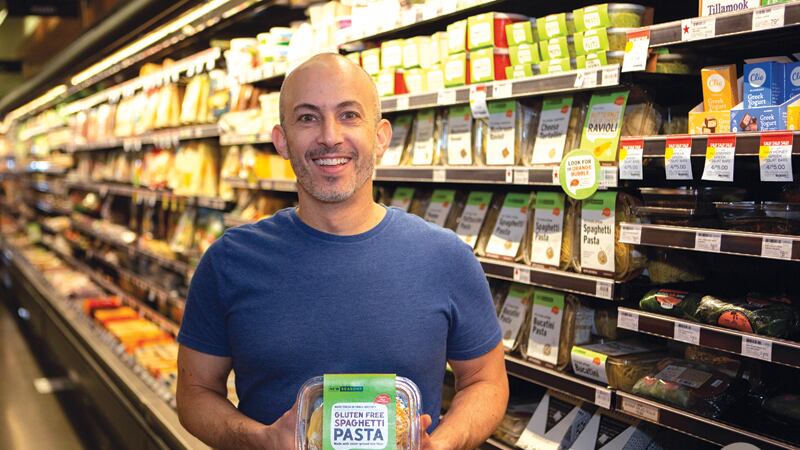Our relationship with the grocery store has never involved more care or consideration. In the past four months, the food system has changed dramatically, from shortages to shut-downs with small, local businesses hit the hardest. For New Seasons, the local food economy has always been a priority, but the mission is more essential now than ever.
Here are three Portland producers who have transitioned their businesses in the wake of the pandemic, with items you can find on New Seasons shelves and through contactless delivery or pickup. All have unique stories to share about their changing businesses, reminding us of the importance of shopping local when times are tough.
Renata

Just six months ago, anyone could stroll into Renata in Portland's Central Eastside, the upscale Italian restaurant known for its wood-fired pizzas and handcrafted pastas. When the pandemic hit, everything changed, and the couple behind the beloved restaurant had to reevaluate their business model. That meant turning to New Seasons to bring their food into Portland homes.
"We realized that people were not wanting to go to the stores as much and that everybody, all of a sudden was homeschooling and stuck at home working," says Sandra Arnerich, chef and owner of Renata. "We wanted to provide a way for people to have an easier meal situation, because it was already so challenging, on so many levels."
The natural response was a make-shift retail business, and the duo began exploring ways to package their products for the stay-at-home world. First, with pastas and sauces, and then with frozen pizzas—their sweet spot.
Food, to Arnerich, ties a city together, especially in times of turmoil. Being able to provide a local product to the local community—even if that product may look different—is the reward.
"It's all about nurturing people," Arnerich says. "And I think that right now, we all need to be nurtured."
Straightaway Cocktails

The pivot from cocktails to hand sanitizer wasn't expected by the masses, and it definitely wasn't expected by the distilleries tasked with making the strange transition.
"If you'd asked it three months ago, I would have looked at you like you had two heads," says Cy Cain, CEO of Portland's Straightaway Cocktails.
With access to high potency alcohol, and a relationship with the folks at Brew Doctor kombucha, Cain and co-founder Casey Richwine became able to produce hand sanitizer in bulk—a resource desperately needed—and supply the customers at New Seasons.
It's what Cain calls a "quadruple win". The pivot to hand sanitizer keeps Straightaway Cocktails in business during this difficult time. It keeps the product on the shelf at New Seasons, and in the homes and cars of New Seasons shoppers. And, ultimately, it helps to keep Portland safe, virus-free and on the path to flattening the curve.
Rallenti Pasta

In March, when you'd be hard pressed to find a box of fusilli on any grocery store shelf, Adam Berger of Rallenti Pasta made eight tons of pasta to be sold at New Seasons.
Berger is a long-time New Seasons vendor, but even this was out of the ordinary. His relationship with the market began five years ago as an outgrowth of his now shuttered restaurant Tabla, a staple of Northeast Portland—customers had an affinity for his oddly shaped pastas and suggested he sell them to New Seasons, known for its commitment to local producers.
When restaurants closed their doors this past spring, Berger business became all the more important. Pantry staples, including pasta, were the first to go with frantic shoppers, and most grocery stores struggled to match demand while relying on major distributors.
New Seasons' commitment to fostering relationships with small, local providers uniquely positioned them to bypass this problem. As big box retailers scrambled, New Seasons was able to reach out to Berger directly, allowing him to step in for his community and ramp up production.
"New Seasons, in particular, as a local supermarket chain is like this beacon of food supply during this whole thing," Berger says. "As one of their vendors, I think they're just doing a great job of keeping the supply chain going and working with their vendors, especially their small vendors, to help them get the food to the shelves."
Learn more about New Seasons vendors and the local food economy by listening to the new Tasty Thread podcast and see what's in season now at their website.

